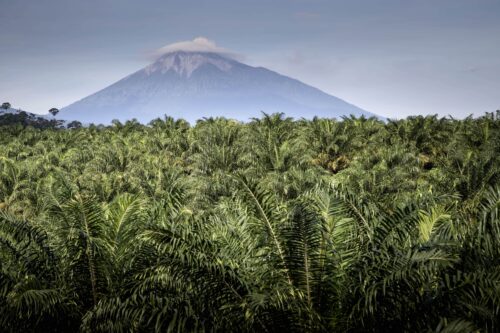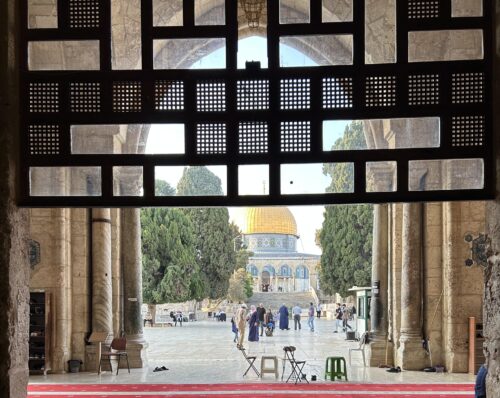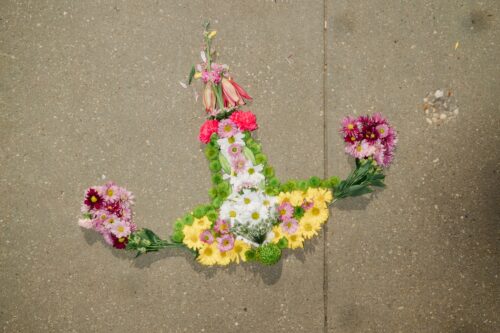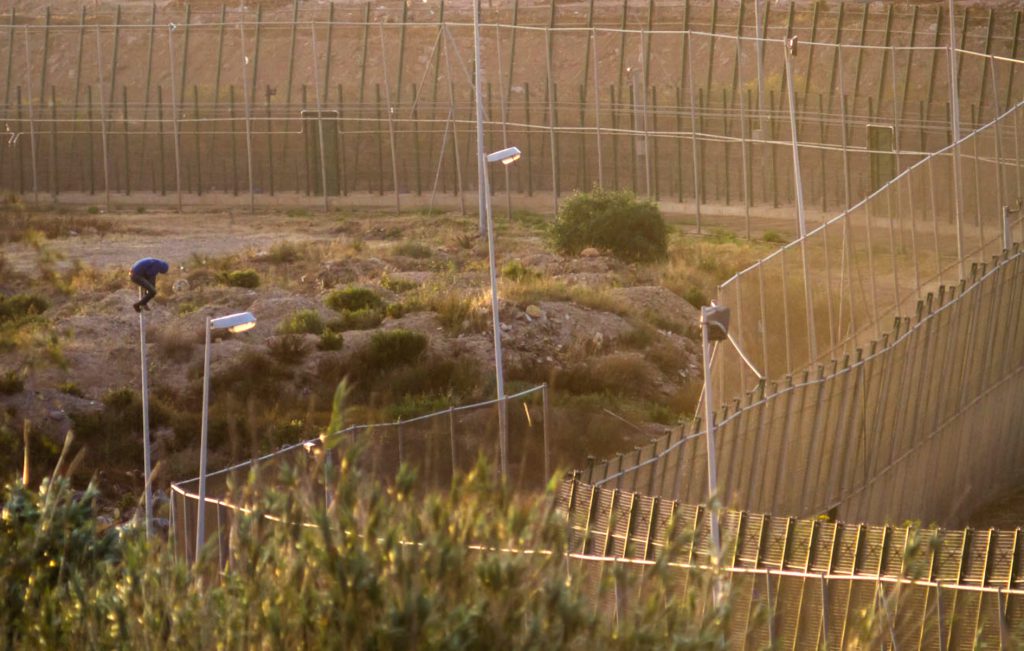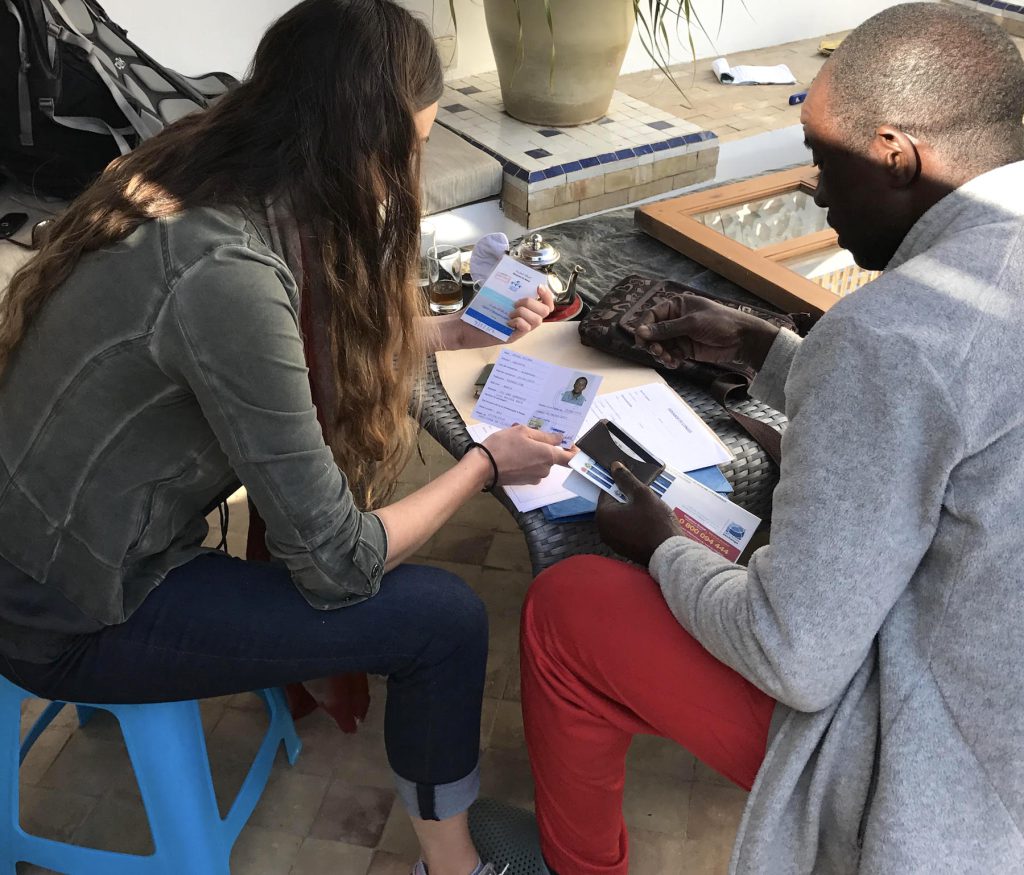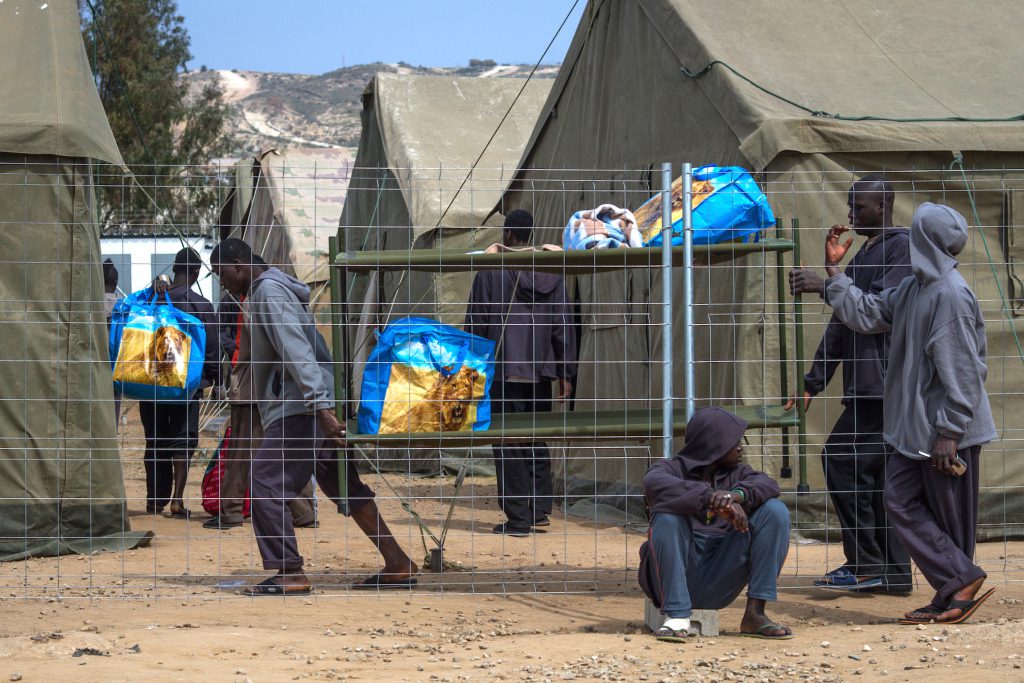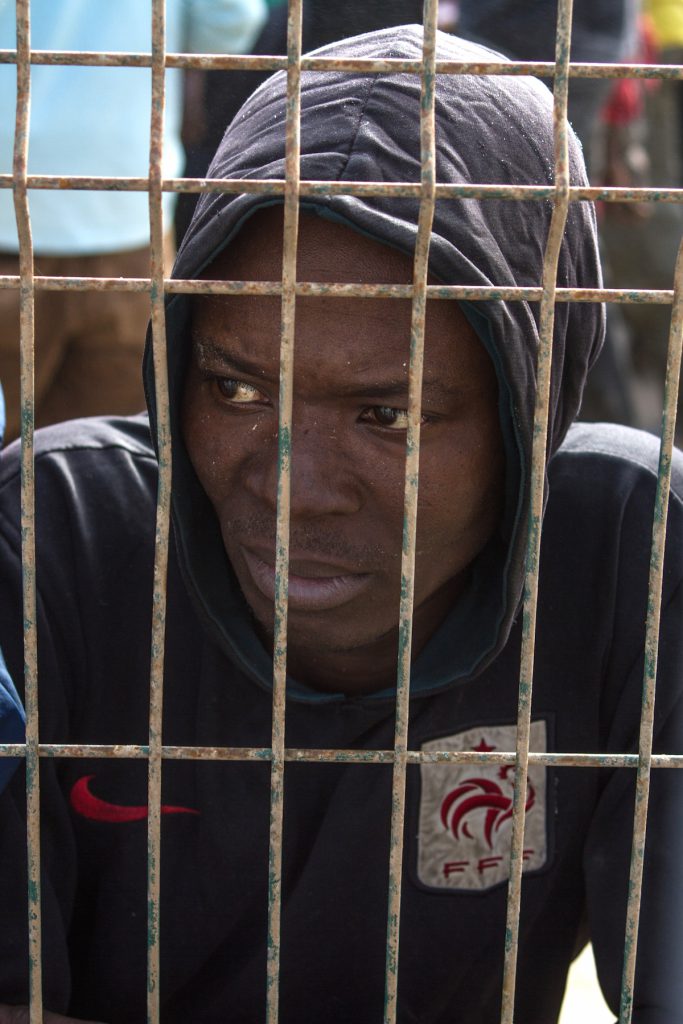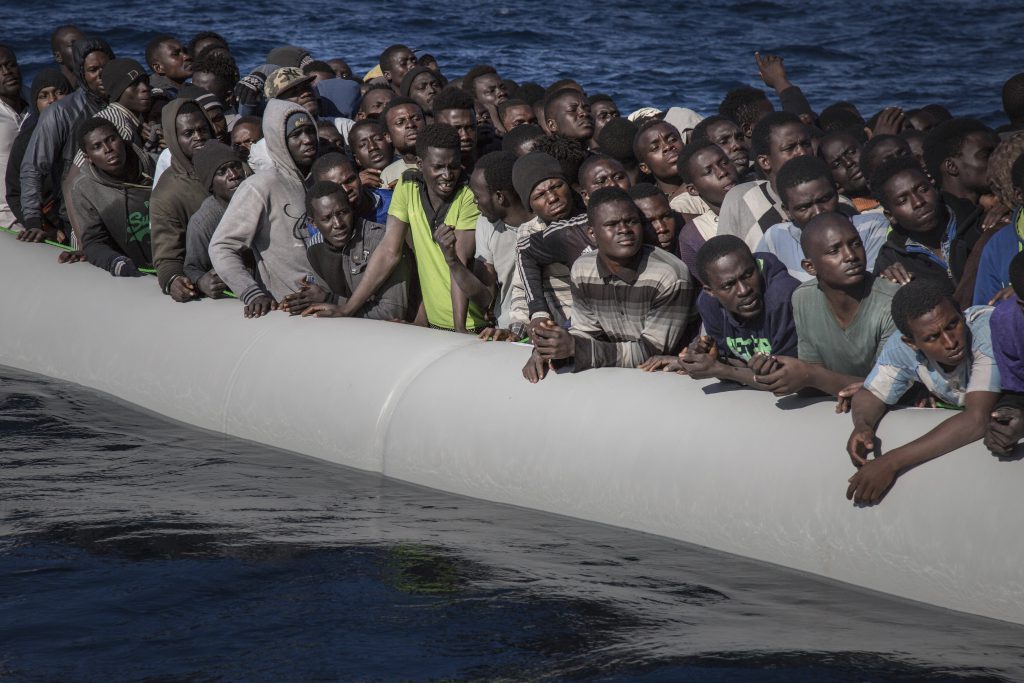For African Asylum-Seekers, a Treacherous Journey Is Only the Beginning
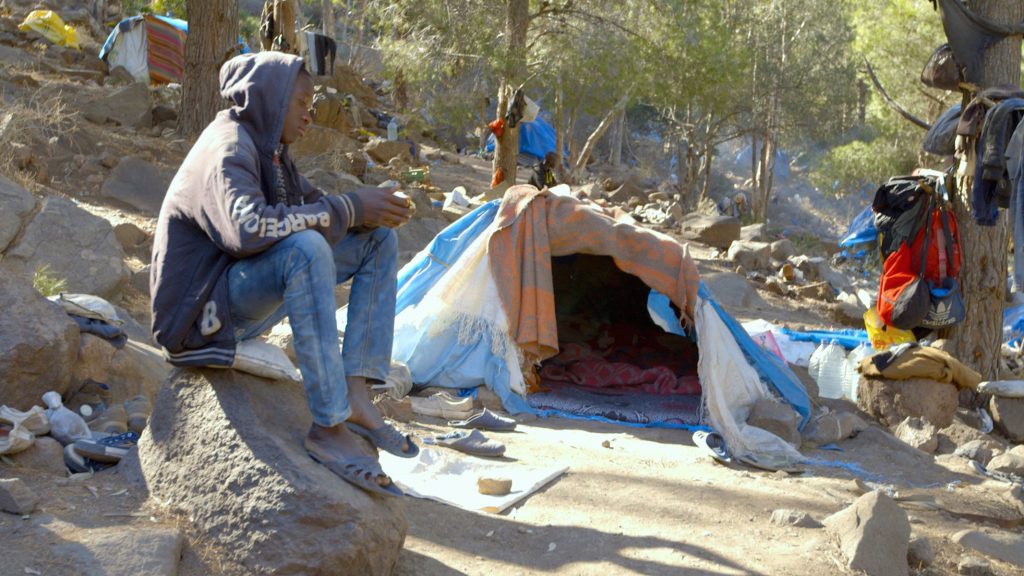
Africans who arrive on southern European shores seeking asylum are immediately faced with difficult questions—questions that will determine their futures. Many ask themselves: “Has my suffering been enough? Is my story enough?”
I met one such asylum-seeker, Alphonse Ngiaba, in the summer of 2013 at a detention center in Oujda, Morocco, during my first weeks of a three-year anthropological study. Alphonse’s journey had taken him all the way from his home in the Democratic Republic of the Congo (DRC) to Europe. He had spent the first two years of his journey, from 1999 to 2001, in a refugee camp in Gabon, and then he had worked in Libya and Morocco for several years saving money for his boat crossing to Spain. After finally making it into Spain, Alphonse began the long process of seeking asylum.
Alphonse’s narrative hit all the right keys for caseworkers: His village in the DRC had been ravaged by war, many of his family members were killed, many of his peers had been forced to serve as soldiers, and his only possible future was one of military conscription. Alphonse saw his only hope in seeking out a new life on safer shores. “I stayed home until the war grew too strong, and then I had to leave,” he told me. Yet there he was, like so many others, back in Africa again.
Africans make up the largest proportion of the 1.3 million migrants who enter Europe each year. Many are first drawn to Morocco, which promises the shortest water crossing to Europe—less than 8 miles by boat to southern Spain—and also the only land border on the African continent. The Spanish enclaves of Ceuta and Melilla, located on Morocco’s Mediterranean shore, are remnants of the country’s colonial past. Though these territories are now protected by three 20-foot-high fences topped with razor wire, they require no smuggling fees to enter—only the ability to climb and the willingness to try. Banding together by the hundreds, young men and boys attempt to scale these fences, bearing heavy blows from the Spanish guards who are armed with batons on the other side, in the hope that a few will successfully escape into Spain. Yet for those who do make it onto European soil, the journey to safety has only just begun. They must then prove that their case is strong enough to allow them to stay.
About 80 percent of migrants fleeing war-ravaged Syria are granted asylum in Europe. But for asylum-seekers from sub-Saharan Africa like Alphonse, only 20 percent will be given the chance to stay. Alphonse’s experiences and those of other sub-Saharans show how frequently they are stigmatized—more commonly viewed as packs of threatening black men than as vulnerable individuals in need of protection. Yet surely young men like Alphonse are among the people that international human rights laws were written to protect.
When I began doing research in Morocco, I was spending long days in migrant-populated detention centers, meeting with groups of sub-Saharan Africans in order to understand how their journeys had ended there. Alphonse was quiet, always the last in the group to speak. But as the trust between us slowly developed, we began meeting for individual interviews, and in the small details that he shared with me, I noticed that he had an unusual story to tell. He was one of the first I met who had made it to Europe, only to be sent back to Africa again.
Alphonse came from a village called Wamba, in a war-torn region of central DRC. In the late 1990s, fighting between rebels on the side of the Congolese Liberation Movement and those on the side of the Rally for Congolese Democracy Movement had reached his village. According to a statement released by the U.N. Refugee Agency in 2001, the war killed 2.5 million people in its first decade. Alphonse’s father had owned a small store, where his mother and younger siblings had worked, making enough to keep food in their bellies and nothing more. In the DRC, higher education was the only way out of conscription, but for those born in Wamba, a college education was unheard of—most children didn’t make it past elementary school, let alone high school. “If you have a high school diploma, then you’re made an officer. I would have been a simple soldier,” he told me, speaking French with the rhythmic cadence I’d come to recognize as Congolese.
Sitting next to one another, with the detention center’s graffiti-covered wall beside us and the late afternoon sun hot on our backs, we talked at length about the past. Alphonse’s stories flowed quietly but steadily. He told me about his early years going to school in a one-room schoolhouse and playing soccer on the dusty streets. He told me about the day he first saw the huts around him burning and his fears about what would become of his family if he left. He told me about the heartbreak of losing two of his brothers—one who joined a rebel group and one who was killed in the war (although he was not fighting for either side)—and the realization in his late teens that he had no choice but to flee. “My mother was happy when I left because the boys who stayed behind had no choice but to fight,” Alphonse said. “I was her oldest child, and she wanted better things for me.”
For the first two years, Alphonse lived in a refugee camp in Gabon, and things there were difficult. “I was alone. I lived like a scavenger bird, but there was little to scavenge,” he said. “Day to day, I was just trying to survive.” My own experiences working throughout West Africa had shown me that these camps were among the worst on the continent: Food was scarce and tents were so overcrowded that many were forced to sleep outside.
Traveling by foot or hidden in smugglers’ trucks, Alphonse had covered nearly 5,000 miles to get from the Congo to North Africa, and it had taken him about six years in all—working odd jobs as a day laborer and hawking goods on the streets of Libya and Morocco—to scrape together enough money for his place on a boat. “I remember the day I left for Europe,” Alphonse told me. “I will always remember it. It was in January of 2005. It was a long ride to the water, and I was packed in the belly of a truck with many others. The air was so hot, and I was worried there wasn’t enough for all of us.”
Migrants who make it to Europe must decide whether to present themselves to a U.N. High Commissioner for Refugees (UNHCR) office as formal asylum-seekers or attempt to escape the system and live as undocumented migrants. In that moment of decision, their future is a game of chance, and they must thoughtfully weigh their odds. Official refugees (those who have been granted asylum) have better work and educational opportunities; the possibility of bringing spouses, parents, and children over through family reunification programs; and the chance to walk down the street without the constant fear of deportation. They can report a crime when they’ve been victimized, go to the hospital when they are sick, and send their children to school. But if an application for asylum is denied, as most from sub-Saharan Africa are, asylum-seekers are deported.
Those who have less faith that their applications will hold up under the scrutiny of their assigned caseworker take advantage of Europe’s overcrowded detention centers to escape. In some ways, this escape symbolizes the completion of the migrant’s long journey—the attainment of a dream—but it comes with a sense of defeat. Migrants flee knowing they will never see their families again, and, as one Spanish caseworker told me, they are likely to end up living in trains in abandoned rail yards, in condemned houses, or on mattresses outside that are covered in plastic sheets. For those few who are able to find paying work, it will be temporary, under the table, and for low pay—no more than a few euros an hour.
When Alphonse’s boat landed in Spain, he decided to take the risk of applying for official refugee status. He had been instructed on exactly how he should tell his story to those who greeted him on the other side. “I’d memorized every word of it,” he told me, “and I practiced it again and again in my head. … I was born in the Congo. I fled when the war reached my village. I am a political refugee.”
The international laws protecting our human rights trace their origins to World War II and the refugee crises of the years that preceded it. Most central among them is Article 14 of the Universal Declaration of Human Rights, which guarantees all citizens of the world the basic right to seek asylum in other countries to avoid persecution. However, the conditions under which people’s home countries should be declared sufficiently unsafe to justify asylum have long been contested by signatory nations. Keeping migrants undocumented provides cheap labor to bolster their struggling economies. In the end, the future of asylum-seekers is left to a series of short and highly subjective interactions with local UNHCR caseworkers, or, on appeal, with local judges.
These interviews for asylum often take less than 30 minutes. For the asylum-seekers, their futures ride on first impressions. They trade advice on how to best tell their stories: How does one dress to look both vulnerable and responsible? What details are best revealed or concealed? One woman I met from Ivory Coast, whose application had been denied, regretted not having cried in her interview. “Sometimes, speaking your sadness isn’t enough,” she said. Ingrained prejudices easily seep into the decision-making process: Women are more likely than men to be seen as vulnerable, and those who have been numbed by their traumas may have trouble convincing an interviewer of how dire their circumstances really were. The interviewers, neither highly paid nor highly trained for dealing with psychological trauma, may not realize the various ways in which it can manifest or the ways in which their own biases can affect their judgments.
It took a year for Alphonse’s case to be heard. (Today it can take upward of 18 months in some countries.) He secured temporary work in Madrid while awaiting his hearing, and his employer was deeply impressed by him. Over the phone, the man who owned the small shop where Alphonse had worked nights told me, “I was moved by his story—by how much he had endured to get to where he was. I was impressed by how hard he worked. He was the hardest working employee I’d ever had. He was quiet, but he was always asking me what else he could do, he always had a smile on his face.”
But at Alphonse’s first hearing in 2006, his application was denied. “I learned that I hadn’t been granted asylum because I’d spent too long in another country before arriving to Europe,” he said.
Under the guidance of his employer, Alphonse began saving every penny he could scrape together to pay for an immigration attorney in the hope of making an appeal. “We were sent to another court to have my case heard by another immigration judge, and that judge asked me if the government of Gabon had given me a home. I said no. He asked me if they’d given me three meals a day. I said no. He asked me if they’d given me a doctor or an education, and I said no,” Alphonse told me. “In the camps, there’s little given to you. Sometimes you have food and sometimes not. Only those who are dying ever have any medicine. Never did I see any books.” The judge ruled that Alphonse was provided no means to survive in Gabon, which reopened his path to asylum. He was given paperwork showing that his status was still under consideration.
Alphonse had been living in Madrid for two years, finally settling into the feeling that he could walk down the street without fear, when his journey back to the other side began. “The officers came for us in the early morning, just after I’d returned home from work,” he told me. “I was sharing a small apartment with five other Africans, and they came for all of us. I’ll never know why. Had one of them done something wrong? Had one of us been reported by our neighbors? We couldn’t ask any questions. They threw us on the ground, they handcuffed us, and I was hit by one of the officers when I asked if they would remove my handcuffs so I could show them my papers. I was hit even harder when I told them I was a refugee. I thought, how can I get this far only to be sent home? I have papers now! I am safe in Europe now!”
Alphonse’s deportation back to Morocco was a mistake: He was swept along with the crowd of undocumented migrants he was living with—even though his application was still under review.
But there is little hope that such a mistake will ever be rectified. Morocco is overwhelmed with migrants who want to leave for Europe, not to mention the growing numbers who are being returned from Europe. Although denied asylum-seekers should, according to international law, be returned to their home countries, Spain has created a third-party political agreement that allows them to pay Morocco to complete the repatriation. But Morocco doesn’t follow through. Today, according to official estimates, about 100,000 sub-Saharan African migrants, refugees, and asylum-seekers are living in Morocco—many in makeshift camps in the forested mountains surrounding the Spanish enclaves or in slums outside of cities like Rabat and Tangier. These estimates are almost certainly too low.
Had I written this piece a number of years ago, I may have made the argument that we should begin recognizing all displaced persons as having the same basic human rights granted to refugee populations. I would have challenged the distinctions made between the migrant and the refugee, who are both escaping one home in search of another. But today, I’m not sure that the language matters. What good would it do to include all displaced persons under the protected category of “refugee” when the very system that is in place for protecting refugees is deteriorating so rapidly?
The number of asylum applications received by the EU rose by 44 percent in 2014. In France and Spain, applications have increased by 73 percent and 64 percent, respectively, in the past five years. The U.K. Royal Navy estimates that half a million migrants will attempt to cross the Mediterranean this year alone, and these numbers will continue growing. The EU, especially its southern nations, carries the weight of a great exodus of men, women, and children fleeing political and economic insecurity across Africa and the Middle East. It is a weight that far outweighs the size of those nations relative to the rest of the world. Morocco, too, struggles under the burden of its own economic instability, making it difficult to turn down the significant funds they receive from Europe for their role in controlling African migration flows. Last year alone, Morocco was paid over 30 million euros in the name of “development aid.”
As people lose faith in the official resettlement systems, illegal routes gain momentum. Passports are bought and sold. Smuggling businesses thrive. And governments auction off citizenship to the highest bidder—the U.S., for example, offers special visas to any applicants making million-dollar investments. It should be no surprise that those at the bottom of our global economic pyramid end up paying the highest price for their chance at inclusion.
I have asked many migrants the same question: If you knew you would be stuck in Morocco forever, would you have chosen to stay home? The answer I receive is always yes. But if given even the smallest chance of someday making it to Europe, they all say they would leave home again. They live on this glimmer of hope. “The official reason I left home was that it was no longer a safe place for me to live, but all of my life, I dreamed of going to Europe,” says Alphonse. And even if a return migration were not a near impossibility, he knows that it would carry with it the stigma of failure. Many migrants like Alphonse see themselves as soldiers, fighting and often sacrificing themselves in the hope of supporting their families. “I will make it to Europe,” one 15-year-old boy told me, “or I will die trying.”
The last time I visited Alphonse in 2013, he was still in detention—a hard place of metal and concrete. The guards spent their time aimlessly pulling the trigger on the weapons resting at their hips—click, click, click—every dry fire a reminder for detainees of the seconds, the minutes, the months spent locked in there. Alphonse’s quest to reach Europe would continue, but his expectations had been lowered. “We don’t know what’s coming next. We can’t see past the walls around us,” he said. “After months, I finally start to expect that nothing is coming.”
Two years later, in 2015, Alphonse was released. When I caught up with him again last summer he was living in a slum outside Rabat, after being beaten back by guards in his most recent attempt to enter Spain. For Alphonse, his years of sacrifice had ultimately achieved nothing and led him nowhere. As is all too often the case, he had simply been returned to the very state of vulnerability from which his journey first began. Nonetheless, he was still hoping to make it to Europe someday.























